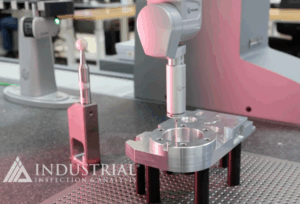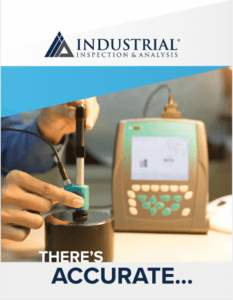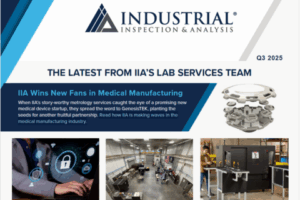Laser scanning for high-accuracy data capture
Data capture with 3D scanning is efficient, flexible, and highly accurate. What can we scan? From the face of a penny to the contours of a fighter jet — and everything in between. We leverage a variety of scanning technologies as needed to address constraints of material, size and complexity.
IIA has an extremely wide range of 3D scanning capabilities, including triangulating laser, conoscopic laser, blue light, structured light, terrestrial range, laser tracker, chromatic confocal, time-of-flight laser, phase-based, photogrammetry, and various contact technologies. Also see our CT Scanning page for more 3D scanning options.
Talk To An Expert
Don’t see exactly what you are looking for? Or maybe you do and want more specifics or an estimate. Either way, you can call us at
470-264-5765
right now or just fill out the form below and we will respond back within 24 hours.
How it Works
With 3D scanning, a laser is projected onto the surface of an object and a camera captures the reflection. The laser can be in the form of a single point, a line, or an entire field of view. When the reflection is captured, each point is triangulated, measured, and recorded, resulting in a 3D rendering of the shape and surface measurements of the object.
3D scanning is the first step toward a variety of technical applications, including reverse engineering and scan-to-CAD comparison. 3D scanning can be especially beneficial for:
- Airfoil shapes such as turbine and impeller blades
- Organic geometry such as the human form, dental impressions, and archaeological artifacts
- Contoured exteriors and interiors of automobiles
- Any complex, non-prismatic geometry, with or without variable curvature
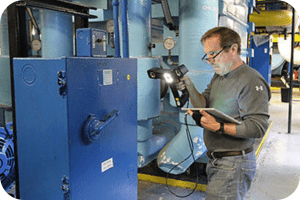
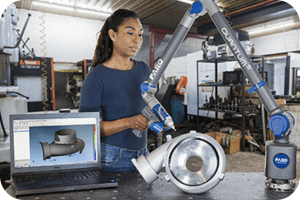
Scanning Platforms
- Red Light Laser
- Blue Light Laser
- CMM-Mounted Systems
- Optical CMM Systems
- Digital Contour Tracing
- Arm-Mounted Portable Systems
- CT Scanning (for internals)
- Range Scanning
- Laser Tracking
Learn more about our 3D scanning tools.
Applications & Outputs
- Precision Dimensional
- Surface and/or Area
- Deviation Analysis
- CMM-Mounted Systems
- Reverse Engineering
- Raw Point Data
- Neutral CAD Files
- Laminate and Composite
- AM Internal Features
Coverage: for Organic Shapes
Organic shapes such as rifle stock, a computer mouse, motorcycle helmet or prosthetic can be very difficult to define with traditional CMM inspection. With 3D scanning, organic shapes are a non-issue. Scanners collect high-resolution data on organic surfaces very quickly and accurately. A point cloud contains millions of points which can be used to show incredibly fine detail in any free-form or contoured surface.
Speed: Gather Data Quickly
A typical CMM will capture a few dozen points per minute; while scanning can capture millions of points per minute. 3D scanning is an excellent tool for product and process designers who are looking to quickly capture, measure, and verify that a part conforms to specifications. Scanning-based inspection, or computer-aided verification (CAV), uses this full-coverage advantage to demonstrate deviation visually. Specific features and dimensions can be extracted from the 3D data at any time.
On Site. On Point.
If your parts are stationary or too large to ship, no problem. We can come to you. With technicians based in multiple locations across the U.S., onsite, portable 3D scanning and data capture is a core component of our service offerings.
Qualifications, Accreditations, and Certifications
All inspectors are certified to one or more of the following:
- CQI (Certified Quality Inspector)
- CMI (Certified Mechanical Inspector)
- CQT (Certified Quality Technician)
- CQE (Certified Quality Engineer)
- CQM (Certified Quality Manager)
- CQA (Certified Quality Auditor)
- A2LA Accredited to ISO/IEC 17025: 2005
- ASQ Certifications
- ITAR, JCP and SAM Registered
- DCS Certified
- NADCA Participation
- Federal Firearms License
- A2LA Testing Cert: 1172.01
- Duns Number: 19-993-4829
- NAICS: 541380 (Mech. Testing Lab or Services)
- Cage Code: 0GB04
- SIC Code: 8734
Resources
